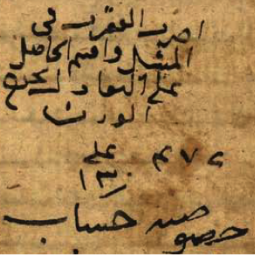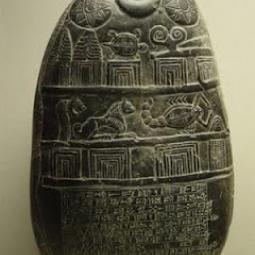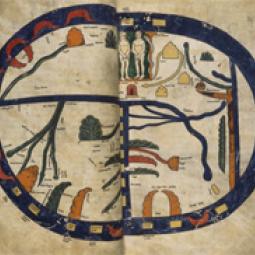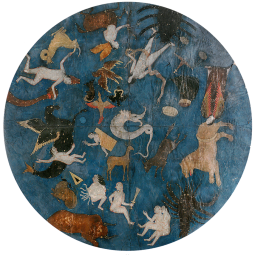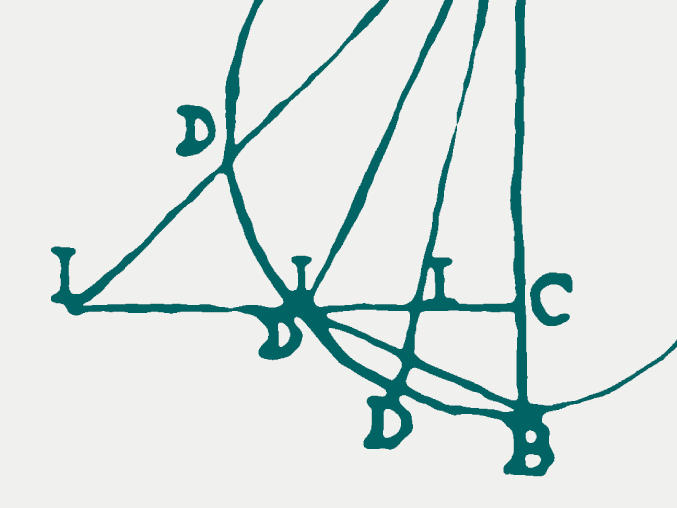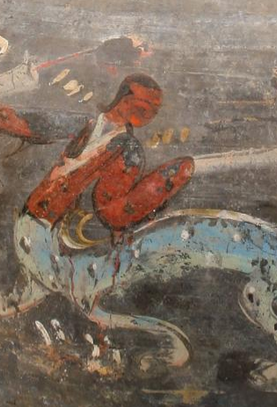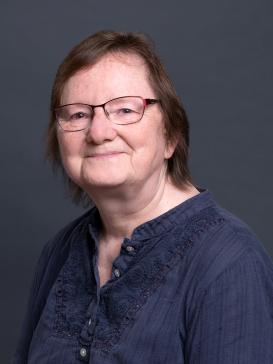
Biography
I am a historian of science with a focus on institutions, mathematics, and mapmaking in Islamicate societies until 1700 and cross-cultural encounters in the Mediterranean and western Asia since the eighth century. Currently, I am working on a new interpretation of the Book on the Balance of Wisdom by 'Abd al-Rahman al-Khazini (d. 1130s). With an international group of scholars, I am also building an image database on the visualization of the heavens in Eurasia and North Africa until c. 1700 and the material and intellectual cultures of these images.
I studied mathematics at the Technical University Dresden (1969–1973), history of mathematics and science at the Karl Marx University Leipzig (1973–1976), and Near Eastern history and Arabic at the Martin Luther University Halle-Wittenberg (1978–1982). I wrote my PhD on the history of linear programming and my second dissertation on number theory in Arabic and Persian texts composed between 800 and 1250 (1977; 1989). In 1991, I acquired the venia legendi.
I have published broadly on different topics in the history of mathematics, cartography, patronage, higher education, science and the arts, cross-cultural encounters, and historiography. Recently I edited a book on processes of globalization in the Mediterranean between 700 and 1500 (with Jürgen Renn) and a book about historical narratives on scholarly activities in non-Western societies of the past and their distortions (with Taner Edis and Lutz Richter-Bernburg). My latest published paper deals with early modern sources that reveal how Europeans learned to speak and write Arabic outside the university.
Visualization of the Heavens
The VoH project was inspired by a talk by Tansen Sen (NYU Shanghai) at the MPIWG in 2016. I was leader of the working group during the first phase of the project 2017–2021.
Our aim was to assemble digitized images of primarily non-textual objects with astral imagery in Eurasia and North Africa from the fourth millennium BCE to 1700 CE to enable a variety of research projects both at the MPIWG and across the global academic world. For this purpose, I organized an international discussion group of experts in different disciplines including Near Eastern and East Asian history of astronomy, Islamicate, central Asian, and East Asian art history, Tibetan history of medicine, and Middle Eastern religious studies. The first phase of the database was built by Sonja Brentjes, Ruixuan Du, Rana Brentjes, Tyler Roeder, Aida Alavi, Satomi Hiyama, Ronit Yoeli-Tlalim, Michelle McCoy, and Jürgen Neuß, and benefitted from the contributions of numerous colleagues.
The greatest challenges in creating this image data base were of a methodological nature and the specific conditions that come with a set of DH tools. The methodological questions included determining what kind of images should be collected, which kind of objects had to be looked for, and where to find them. The answers varied, depending on the colleagues who contributed to the discussions and their disciplinary perspectives. The main tool to organize the material assembled in this framework is the category tree which grew and changed continuously. The DH related issues concerned the type of metadata to be set up and their specific format.
Together with colleagues in the discussion group, workshops or panels were organized addressing questions of how and where to find material that would fill the main gaps in our knowledge based on texts about the development of astral knowledge inscribed in non-textual objects, how to determine and interpret the layers of such knowledge in the objects’ imagery as well as the observable changes in the pictorial representations of astral knowledge, and how to uncover traces of connectivity across Eurasia and North Africa over almost six-thousand years as well as territorial, temporal, cultural, and social boundaries of objects with astral imagery on the move. The results of those discussions and reflections have been published in a special issue of NTM (2020), edited together with Dagmar Schäfer, and chapters in books edited by Sabine Schmidtke at the Institute for Advanced Study, Princeton (2020) and Jeffrey H. Hamburger, David J. Roxburgh, and Linda Safran at Dumbarton Oaks (2022), as well as in the journals Aestimatio (2021), and, together with Hamid Bohloul, the Intellectual History of the Islamicate World (2023).
A main result of the research during this first phase was the discovery of the multiplicity of the pictorial forms of zodiac signs from Mesopotamia across Asia as far as Japan, the multiplicity of causes for their manifold pictorial and conceptual transformations, and the multiplicity of contexts where these transformations took place. A second important result was the discovery of the temporal, spatial, and contextual divergences between the spread of imagery of the zodiac signs, the planetary deities, the seven-day week, the lunar mansions, and the deified celestial cardinal and intermediary directions as well as the regional and cultural boundaries setting them apart from each other. Very few of these features had come to be known from the previous study of texts on astral knowledge produced across Eurasia and North Africa.
Current Projects
Completed Projects
Selected Publications
Fierro, Maribel, Sonja Brentjes, and Tilman Seidensticker, eds. (2024). Rulers as Authors in the Islamic World: Knowledge, Authority and Legitimacy. Islamic History and Civilization 213. Leiden: Brill. https://doi.org/10.1163/9789004690615.
Read More
Brentjes, Sonja (2024). Historiography of the History of Science in Islamicate Societies: Practices, Concepts, Questions. Variorum Collected Studies 1114. London: Routledge. https://doi.org/10.4324/9781003372493.
Read More
Brentjes, Sonja (2024). The Sciences in Islamicate Societies in Context: Patronage, Education, Narratives. Variorum Collected Studies 1119. London: Routledge.
Read More
Fancy, Nahyan, Justin Stearns, Sonja Brentjes, A. Tunç Şen, Scott Trigg, Noah Gardiner, Nükhet VarlıkRutgers, Matthew Melvin-Koushki, and S. Nomanul Haq (2023). “Current Debates and Emerging Trends in the History of Science in Premodern Islamicate…
Read More

